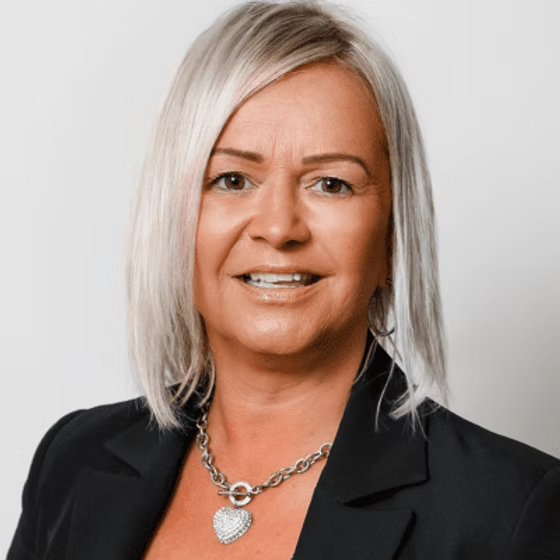“Nobody got into health or social care to write policies.”
— Ruth Kyke, Host, Care Intelligence Revolution Podcast, COO - Health Connect.
For anyone who has ever led a care service — whether as a Registered Manager, Clinical Lead, or Nominated Individual — the word policy probably triggers a mix of sighs, spreadsheets, and sleepless nights.
Policies and procedures are meant to be the bedrock of quality and safety — guiding, protecting, and ensuring that care is consistent, evidence-based, and compliant. Yet, as this episode of the Care Intelligence Revolution revealed, for many leaders, policies have become more of a burden than a support.
The Policy Paradox
“When the policy is there, embedded and sustained, it’s a joy — it’s a safety marker. But the headache is the sheer volume of them.”
— Kelly Mulhern, Co-Founder, PGQ Solutions
For Kelly, a Registered Mental Health Nurse turned transformation consultant, the problem isn’t the existence of policies — it’s the weight of them. Every new piece of legislation, NICE guideline, or CQC update adds another layer of documents to review, rewrite, and retrain staff on.
“While we’re sat there doing that, we’re not doing what our vocation is — which is to care.”
This is the paradox at the heart of social care governance: the more compliance required to prove quality, the less time managers have to deliver it.
Policies in Practice: Reactive, Not Relatable
“For carers, policies are more often used in a crisis — as a reactive tool rather than a proactive guide.”
— Lisa Ann Basson, Co-Founder, PGQ Solutions
.jpeg)
Frontline teams rarely have time to immerse themselves in a 40-page document on medication errors or safeguarding protocols. As Lisa points out, policies often become something staff turn to after an incident, rather than something that actively shapes everyday care.
“Policies have to be relatable to care. At the moment, they’re all about safeguarding the organisation — not supporting the people providing the care.”
This disconnect means that the very tools intended to ensure safety can sometimes create risk — through outdated information, inaccessible formats, or policies written in language no one on the floor can realistically apply.
CQC and the Policy Pressure
“CQC won’t tell you what policies to have, but they will judge you against the ones you’ve written.”
— Kelly Mulhern

For many managers, inspection days bring a familiar dread: will the policies stand up? Are they in date? Do staff even know where to find them?
Kelly recalls one provider where an out-of-date paper copy of a policy — hidden in a drawer — was enough to trigger a compliance issue during inspection, even though the online version was up to date. It’s a story that highlights the fragility of current systems — and the impossible expectations on those trying to juggle care delivery with governance administration.
An Uneven Playing Field
“If you’ve got money, you can pay for the problem of policies to go away. But what about the small home down the road that just wants to do something great for their community?”
— Ruth Kyle
The imbalance between large providers and independent homes is stark. Bigger organisations can afford full policy suites, compliance software, and teams of quality officers. Smaller services — often those with the deepest community roots and most personal touch — face the same regulatory demands but without the resources to keep up.
Lisa put it simply:
“It’s not fair. The person with 50 beds and a heart for their community deserves access to the same quality guidance as the big corporates.”
Reimagining Governance: “Freeing Time to Care”
“Five years ago, if someone told me there was a solution that would take the weight of policies off managers, I’d have said: sign me up.”
— Kelly Mulhern
Both Kelly and Lisa believe the future lies in transforming how policies are created, updated, and lived out — turning them from static PDFs into living, breathing tools built by the care community itself.
“Policies should be in normal English — simple, clear, and meaningful. And they should feed straight into care plans and risk assessments, so that the system is working with you, not against you.”
— Lisa Ann
This vision isn’t just about efficiency; it’s about equity. Every provider — big or small — should have access to expert-led, up-to-date guidance that truly supports their teams and the people they care for.
Changing the Culture
“Bringing someone in to help shouldn’t mean you’re wrong. It means you care enough to get it right.”
— Lisa Ann
A recurring theme in this conversation was the need for a culture shift — from reactive compliance to proactive collaboration. As Kelly put it, “We need to stop trying to reinvent the wheel.” There are experts out there who can help. And new solutions are emerging that are designed not to add to the paperwork, but to free time to care.
To Every Registered Manager Out There
“You’re not alone. Stop trying to reinvent the wheel.”
— Kelly Mulhern
If you’re a Registered Manager feeling the strain — the constant pull between paperwork and people — this message is for you. There is a growing movement, powered by people like Kelly, Lisa, and the wider care community, to make governance fair, accessible, and humane again.
Because policies should never be the thing that gets in the way of providing great care, they should be the thing that frees you to do it.
💡 Listen to the full episode:
🎧 The Care Intelligence Revolution Podcast — “The Pain of Policy: Freeing Time to Care” on all podcast app
Featuring Kelly Mulhern and Lisa Ann, Co-Founders of PGQ Solutions.


.png)

.png)
.png)







